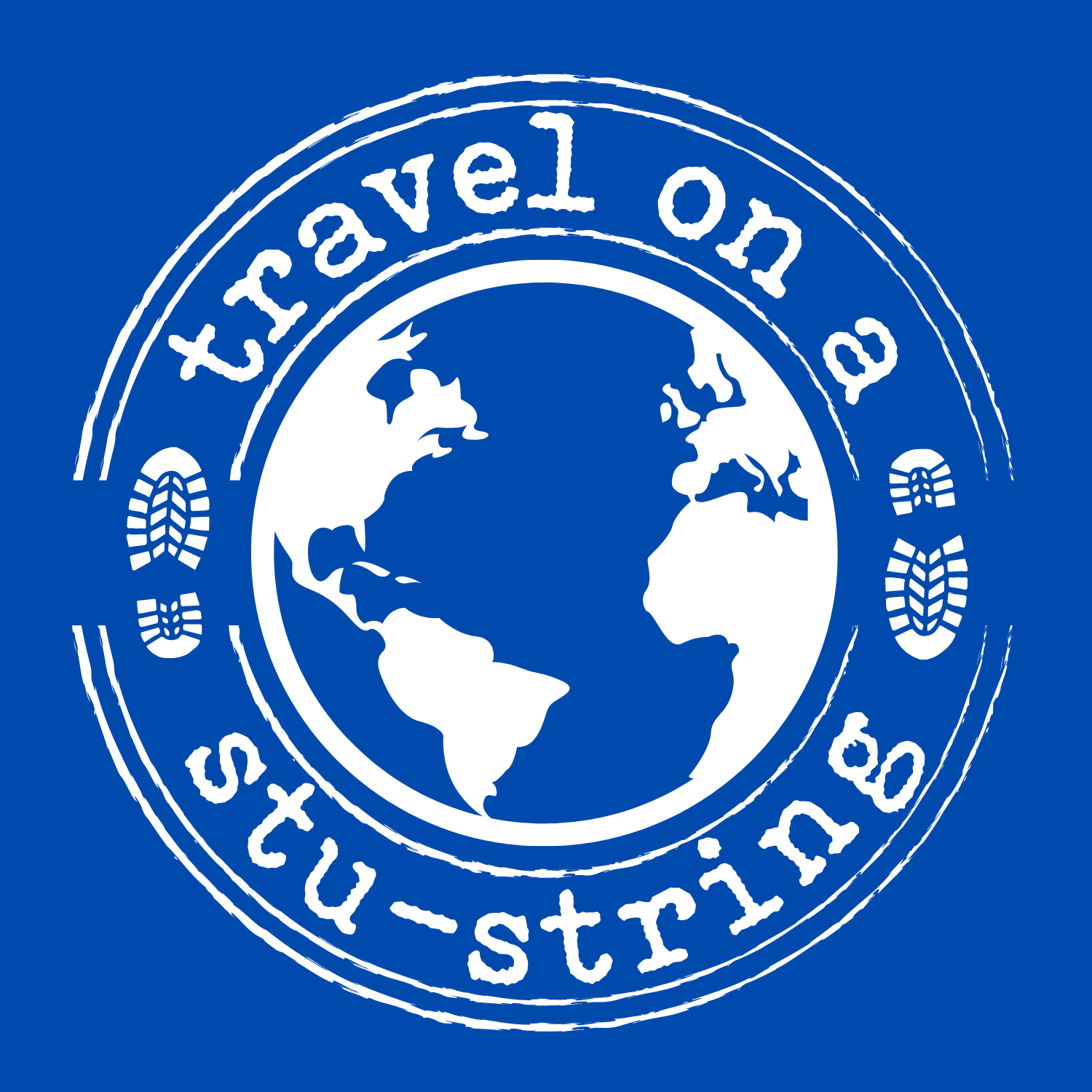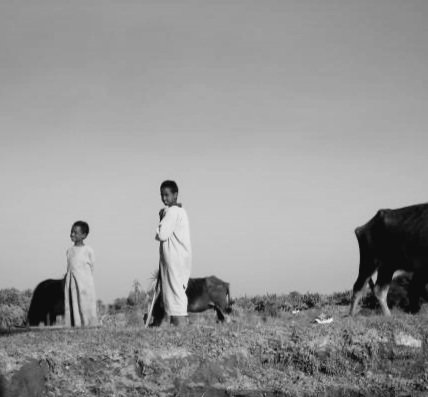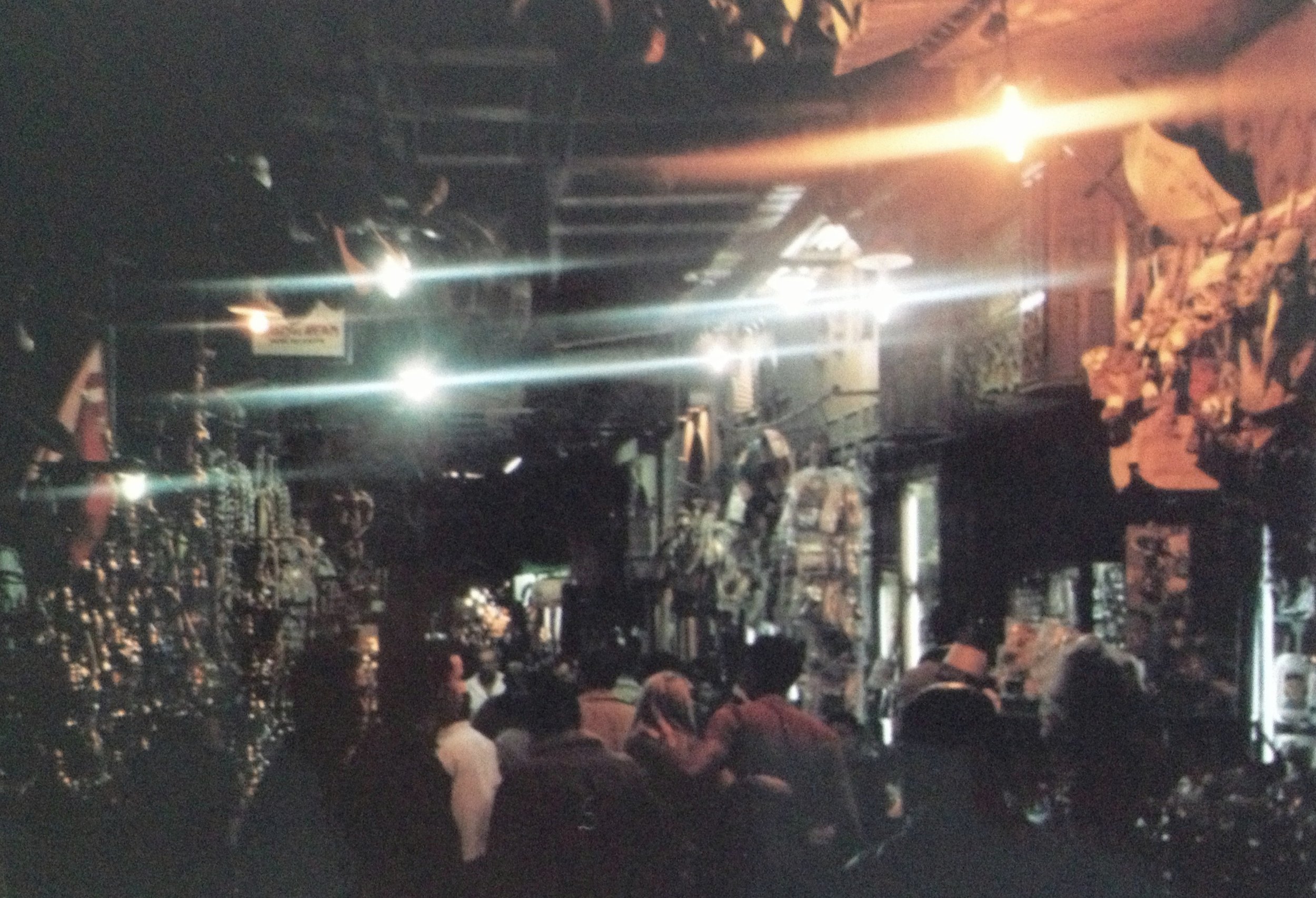Pyramid scheme
‘Quick, in here,’ the metal gate opens with a shove, creaking with resistance. The back entrance of the Winter Palace is not the typical entry point, though this has not been a typical evening. We hurry inside and when the latch clicks into place, know that finally, we are safe. He cannot reach us here. Kristine leans against the cold metal, exhales, and runs her fingers through her long blonde hair.
‘What was that?’ she exclaims.
Luxor’s Winter Palace is a grand hotel, far beyond our modest backpacker budgets, and we arrive shaken and confused. From the back gate we pass a large swimming pool, its turquoise water glistening in the moonlight, and sit at a table between two palm trees. A waiter emerges from behind one of the manicured hedges, and silently places a menu on our table. I nod with confident familiarity, and he disappears back into the shadows.
‘Should we be here?’ Kristine whispers.
‘We’ll be fine,’ I assure her.
The waiter returns, and we order a sheesha, double apple flavour, and a couple of whiskeys. As we share the pipe, blowing smoke trails high into the night air, we reflect on the strange proposal.
Children working a family farm, outside Luxor
Ten days earlier, we meet in Cairo, at a backpacker’s hostel in downtown. Already disturbed by the amount of attention she is receiving, as a young, tall, blonde woman, Kristine asks about my plans, and if we can travel through Egypt together. I agree, and we spend the night plotting our course to Luxor and back.
After a typical backpacker journey up and down the Nile, sailing on a felucca, getting stoned with other travellers, and suffering bouts of temple fatigue, we are impressed with Egypt, though feel that something is missing. Most of our interactions with Egyptians have been in the form of a transaction – a taxi driver, a waiter, a tour guide – even our felucca captain, who hosts us for two nights, does not waver in his performance as ‘Captain Cool.’ In our final days, we want to meet an everyday Egyptian.
In the centre of Luxor, the streets are busy with open air restaurants and sheesha cafes. Wafts of steam and smoke twirl upwards, catching the muted glow of the streetlights. The smell of barbequed meat and sweet apple hovers in the air. From the back doors of the restaurants, scraps of meat and unfinished meals are thrown to the many stray cats. Once revered in Egypt, immortalised in art and even mummified, the emaciated creatures are now beggars. They lurk at the feet of diners, squeaking pitiful meows, and creep through grimy laneways and rubbish piles, their existence now a nuisance rather than a reverence.
The siren call of modern Egypt calls to us as we stroll, ‘friendly prices sir, beautiful wife sir, free tea inside, free to look sir.’ In the shopfronts, headless plastic models are adorned in rainbows of sequinned kaftans, while miniature pyramids and camels sparkle as they catch the light. After more than a week of the same, tiresome lines, we have both grown immune to their allure.
As the evening temperature dips, the crowds thin, and our energy levels subside. We decide to head back to our accommodation, content to resume our quest the next evening. Standing on a curb, waiting to cross the road, a young man on a bicycle stops in front of us. Abdul, dressed in a white shirt and grey pants, introduces himself as a student, and asks if we can help him write a letter to his friend in London. Having not slept much the previous night, we tell Abdul sorry, we cannot. He says no problem and continues cycling down the road.
Luxor by night
The following evening, we are wandering the same streets, on our final night before returning to Cairo. We cross paths with Abdul again, and he repeats his request. We both agree and consider that this may be our last opportunity to interact with an everyday Egyptian. Abdul is pleased, and steps off his bicycle to walk with us to his friend’s restaurant, making small talk along the way, ‘Where are you from, how long have you been in Egypt, where have you visited, what was your favourite place, are you married? and so on.
Abdul accompanies us to Almalk café, The King. He leads us down a creaky flight of wooden stairs, into a dimly lit room. The commotion of the street fades as we descend, as does any view. The room is furnished with wooden tables and bench seating, with laminated menus and napkins on each table. On the walls hang framed photographs of temples and a picture of the President, Hosni Mubarak. In a darkened corner next the servery doors stands another man, hands at his side, expressionless. The room has every appearance of a café, except for customers.
Abdul motions with an outstretched hand to sit down. We sit opposite, facing the stairs. He offers me a beer, and I accept a tea.
‘My friend,’ he begins, ‘you know there are many beautiful gifts in here Luxor. I can get friendly prices for you, anything you would –’
‘I don’t want any gifts,’ I state abruptly, before Abdul can launch into his clichéd sales pitch.
‘Ok my friend, no problem,’ and he pauses, before removing a greasy, stained rag from his pocket. Abdul places it on the table, unties the corners, then smooths out the rag to reveal his collection of coins from around the world.
‘Do you have any Australia money?’ he asks.
I sigh and look at Kristine. Her eyes are scanning the restaurant, already bored and frustrated.
Amazingly, there is an Australian coin in my wallet, a hexagonal 50c piece. I toss it into Abdul’s pile.
‘There you go Abdul, don’t spend it all at once,’ I retort, knowing that he will not understand the sarcasm. He picks up the coin and runs his fingers around its angular sides.
‘Beautiful,’ he exclaims, before bundling up his loot and stuffing it back in his pocket.
‘So, you want to write a letter?’ I state, attempting to steer the awkward interaction back on course.
‘Yes, my friend,’ he begins, and from his wallet he removes a business card, with the first name Keith, and an address in London. He places it on the table and pushes it towards me.
‘Qalam?’ I ask, holding my hand out for a pen.
Abdul motions to the man near the servery who brings a pen and notepad, and then begins his dictation.
‘Dear Keith, I remember when you in Egypt. We the much fun together. I hope you well in England. How is your wife and your family? In Egypt things are good here too, but sometimes difficult…’ and so on. Along the way I correct the grammatical mistakes in Abdul’s speech, however the letter is progressing well.
Abdul then pauses, shifts his position, and sits more upright. His height is accentuated, and his eyes narrow, focusing on Kristine.
‘Keith,’ he continues, ‘I remember the fun times we have with your wife Emily, how we fucked and sucked and had a good sex time. I hope you can come back for do it again...’
I stop writing and put the pen on the table. Abdul is fixated on Kristine. When he notices I have stopped writing, he tilts his head, like a confused puppy, and stares blankly at me, feigning bemusement. I look back, wondering what do to next, when he leaves us with no choice.
Abdul returns his gaze to Kristine, an intense, unblinking stare. I notice his well-defined jaw line and the stubble on his chin. His breath is heavy.
‘Are you getting hot?’
Under the table, Kristine’s hand grips my thigh, her fingernails digging in.
I push the notepad to the centre of the table and stand up, taking Kristine’s hand in mine.
‘You can find someone else to finish your letter, Abdul.’
I lead Kristine towards the stairs, amid a chorus of please, protests, and apologies. We navigate between the wooden tables assuredly, not wanting to appear panicked. Abdul skirts around us, muttering in broken English, my friend, my friend, so sorry, please. He does not block our exit, though leans in close as we walk up the stairs. We rush the last few steps and hurry across the road into the nearest souvenir shop. Inside, we pick up and put down camels and pyramids and Tutankhamen busts, in a rush of adrenaline all while peering through the windows. The objects clank on the glass shelving in our haste. Abdul is in an animated discussion with the other man in the restaurant, who appearing to do so on his orders, returns downstairs.
Abdul is not finished with us, and takes his bike from its resting spot against the wall. He cycles slowly down the street. I nudge Kristine and whisper, ‘let’s go,’ and we edge our way out of the shop. Still frazzled, we do not know where we are going. We duck in and out of bazaars and laneways, and rush across streets. When we stop, we realise we are back on the same street as the Almalk café.
‘Dammit,’ I mutter. We reassess, and then spy Abdul cycling on the opposite side of the street. He notices us and pauses. Sitting erect on his bike, he leers at Kristine. I grab her hand and we escape again, walking hurriedly down the street. Abdul turns his bike around to follow us, hovering at a short distance, without getting too close. We duck in and out of more bazaars, cross new streets and eventually emerge at the rear of the Winter Palace.
The metal gate creaks open, and then closes with a loud clang. Kristine leans against the cold metal, exhales, and runs her fingers through her long blonde hair, ‘what was that?!’
Cover photo: "Thanks to Saskia from family travel blog Sas Crossing Countries for the cover photo. Are you're planning on traveling to Egypt with kids? Visit her website via the link above to read her Egypt articles and follow her on Instagram at @sascrossingcountries."



